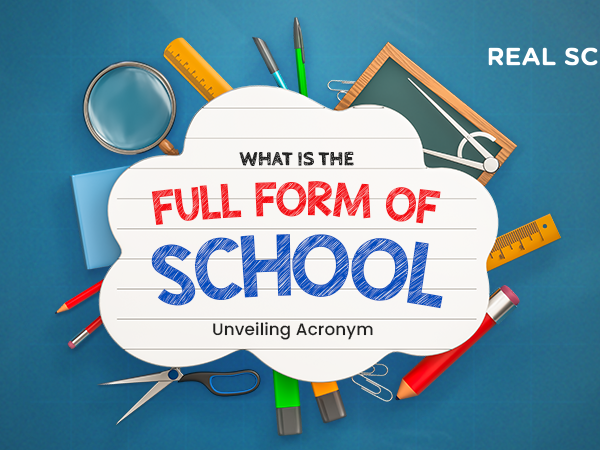A parenting style is made up of many components that work together to construct the emotional environment in which parents express their child-rearing behaviors and activities. Parents’ parenting styles reflect their attitudes toward discipline and parental duties, as well as the goals they set for their children.
- In addition to the substance of what parents say to their children and their general attitudes toward them, both are communicated by parental body language, tone of voice, emotional displays, and level of focus.
- Parenting styles can be seen in the light of how parents’ actions and activities affect their children’s growth. Parents’ beliefs and socialization aspirations, as well as their attitudes toward children and basic parental strategies, all affect.
- While parenting styles are not usually characterized in terms of parent-child relationships, they influence them, as the following examples of parenting styles and their effects on child behaviour demonstrate.
- Academic success, risk behaviours such as drug use and delinquency, and social change are all linked to parenting style in adolescence.
- Parents who can put strict boundaries on their children’s actions while keeping a warm and welcoming atmosphere can promote both accurate interpretations of parental signals and acceptance in a warm interaction that allows children to bond with their parents and their beliefs.
Also Read: Nurturant Parenting vs Overparenting: An Insight View of Different Parenting Models
Types of Parenting Styles
Your parental style affects everything from your child’s weight to her self-esteem. Because the way you communicate with your child and how you discipline her will have an impact on her for the remainder of her life, it’s important to make sure your parenting style supports balanced growth and development.
Four majorly distinguished parenting styles are-
- Authoritarian
- Authoritative
- Permissive
- Uninvolved
Each style has its approach to child-rearing which can be distinguished by a variety of characteristics.

Authoritarian Parenting
Authoritarian parents insist that children should still obey the rules. When a child challenges the reasoning behind a law, they are popular for asking, “Because that’s what I said.” They are uninterested in negotiating and are solely concerned with obeying orders.
- You agree that children should be observed rather than heard.
- You conclude that it’s “either my way or nothing” when it comes to laws.
- You are unconcerned with your child’s emotions.
If all of these statements apply to you, you could be an authoritarian parent. They often prevent children from participating in problem-solving challenges or barriers. Instead, they make the rules and implement the findings without regard for the children’s opinions.
Instead of discipline, authoritarian parents can use punishments. They spend their time making kids feel guilty for their mistakes.
Children who grow up with rigid patriarchal parents are more likely to obey laws. Their loyalty, however, comes at a cost. Since their views aren’t heard, children with authoritarian parents are more likely to have self-esteem issues.
They can even become enraged or violent. Rather than about ways to improve things in the future, they always concentrate on their feelings of rage toward their parents. Since authoritarian parents are always strict, their children can develop a habit of lying to escape punishment.
Authoritative Parenting
Authoritative parents make rules and follow them, but they still take their children’s opinions into account. They acknowledge their children’s emotions but still emphasize that the adults are in control. Authoritative parents devote time and effort to avoiding behavioural issues when they arise.
Strong discipline techniques, such as praise and incentive programs, are often used to promote healthy behaviour.
- You’ve worked hard to establish and sustain a good relationship with your kids.
- You clarify that the rules are in place.
- You inflict rules and penalties, but you still respect your child’s emotions.
If all of these statements apply to you, you could be an authoritative parent. According to studies, children who have authoritative parents are more likely to grow up to be mature people who are confident in voicing their views.
Children who are raised under strict authority are more likely to be content and successful. They’re much more capable of making independent assessments and assessing safety risks.
Also Read: How Activity-based Learning Helps the Student? Why is it Important?
Permissive Parenting
Permissive parents are forgiving. They usually only intercede when a major issue comes up. They’re very forgiving and have a calm demeanour. When they use punishments, it’s possible that they won’t adhere to them.
If a child asks, they can return privileges or encourage a child to exit time-out early if he agrees to be nice.
- You make laws, but you barely follow them.
- You don’t hand out punishments all that much.
- You believe that your child will grow better if you stay out of his or her way.
If you see yourself in such statements, you might be a permissive parent. They often urge their children to discuss their issues with them, but they rarely attempt to discourage wrong decisions or inappropriate behaviour.
Academically challenged children are more likely to have permissive parents. They may have more behavioural issues because they dislike authority and law. They also have poor self-esteem and express a great deal of sorrow.
Since permissive parents fail to reduce fast-food consumption, they’re also at a greater risk for health issues like obesity. They’re much more likely to have cavities because permissive parents don’t often follow healthy behaviour, such as making sure their children clean their teeth.
Uninvolved Parenting
Uninvolved parents are also unaware of their children’s activities. There aren’t many laws. It’s possible that children don’t get enough instruction, nurturing, or parental attention.
- You don’t ask your children about school or homework.
- You rarely know where your kid is or who she is with.
- You don’t devote a lot of time to your kids.
If such things ring true for you, you might be an uninvolved parent. On most occasions, uninvolved parents are unaware of their children’s growth. And often they’re distracted by other issues, such as jobs, expenses, and household management.
Uninvolved parents tend to raise their children on their own. They may not dedicate enough time or resources to addressing the basic needs of children.
Uninvolved parents might turn out to be unintentionally neglectful. An adult with mental health or drug abuse disorders, for example, will not be able to consistently meet a child’s physical and emotional needs.
Children who have uninvolved parents struggle with basic issues like self-esteem. They have a bad academic record. They are still unsatisfied and have a lot of behavioural problems.
Also Read: What Do Child Development Specialists Say About School Starts? Early Education Tips For Parents
Conclusion
Parents don’t often fall into either of these categories, but don’t be discouraged if you’re permissive at times and authoritative at others. However, findings show that authoritative parenting is the most effective parenting form.
No matter if you associate more with other types of parenting styles, you should always work towards becoming an authoritative parent.
You will build a good bond with your child while also healthily maintaining your authority if you are dedicated and committed to being the best father you can be. Your child would learn from your authoritarian personality in the long run.
The material provided above will provide you with all of the information you need to create a positive parenting style and select the best parenting style for kids.
Hopefully, you found this information helpful, and please let us know if you have any further queries in the comments section below. Also, take a look at our other blogs.







